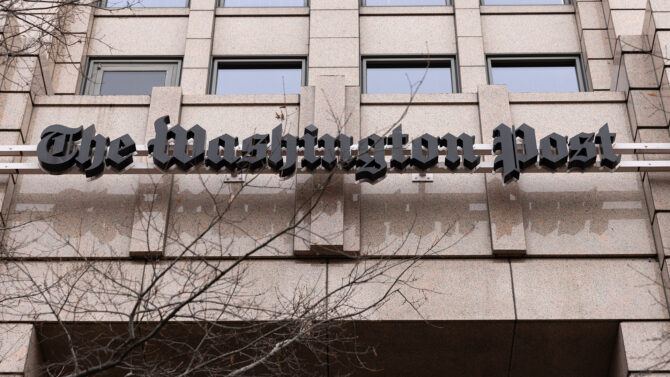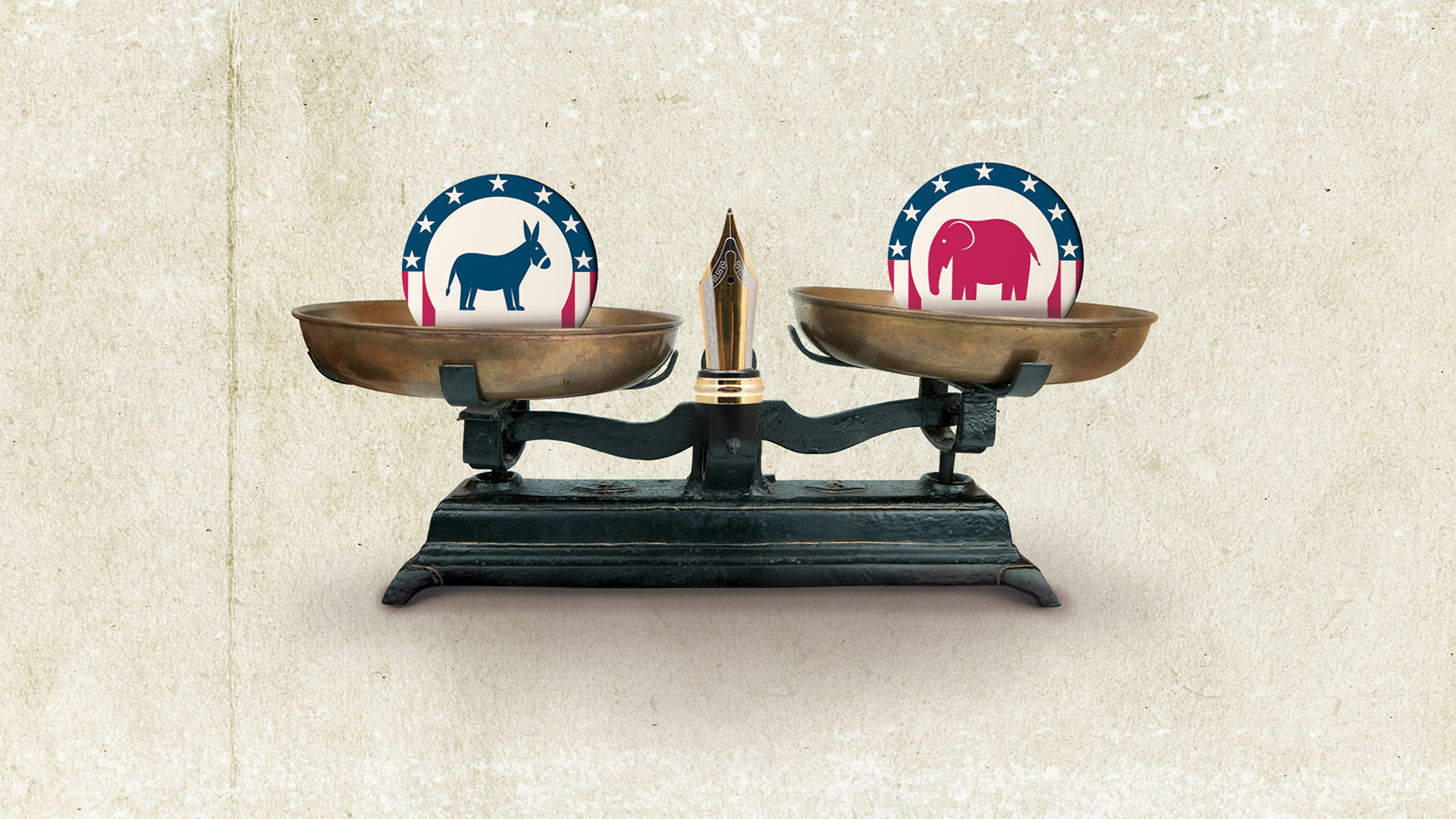Terry Egger has worked in newspapers in the United States for more than 40 years. Most recently he was CEO/Publisher of “The Philadelphia Inquirer”. Prior, he served as the CEO/Publisher of “The Plain Dealer” in Cleveland for 8 years as well as Publisher of “The St Louis Post-Dispatch.”
This past week, there has been a great deal of controversy in the United States over surprising developments at two of the country’s largest newspaper companies – the Los Angeles Times and The Washington Post – related to traditional presidential endorsements, or in this case the decisions not to endorse.
On the surface, what transpired at the Los Angeles Times and The Washington Post appears to be much the same. However, a closer look based on reports would indicate that the decisions made by the owner of The Times, Dr. Patrick Soon-Shiong and Post owner Jeff Bezos differ in at least one important way.
As reported, Dr. Soon-Shiong decided not to publish the endorsement after his editorial board had already presented their endorsement of Vice President Kamala Harris, because he did not agree with their decision. As the owner of the Times, that is indeed his prerogative, but it also clearly undermined the work of his editorial staff.
The Washington Post editorial board was also clearly preparing to endorse Vice President Harris for president, but that endorsement never materialized. Rather, the owner, Bezos, recently made it known that he no longer wanted the newspaper to make any presidential endorsements. His motive is less clear and naturally became open to widespread speculation. His argument, as he explained after the fact (and amid massive subscriber cancellations) in a Post opinion piece, was that presidential endorsements have no impact on voters’ decision and that presidential endorsements run the risk of further eroding the public’s trust of news media.
He essentially argues that publishing such an endorsement only reinforces the public’s perception of “news bias.” Therefore, The Post would break from recent tradition and no longer engage in any presidential endorsements. Again, as the owner of The Post he is entitled to make that call, but given the timing of his decision he should expect the same outcry as The Times received.
From my perspective, had either of these two owners made their decisions not to endorse known even six to nine months earlier, they would face much less criticism if any at all. As it stands, they have opened themselves up to the current storm of criticism over “billionaire bias” and meddling.
As a former publisher and CEO of major newspapers in the U.S. for many years, I have had a front row seat at seeing how the impact of newspaper endorsements have changed over the past few decades.
Opinion | The fallout from The Washington Post’s controversial decision to not make an endorsement for president

Staff members are seething. Some have quit. The audience is so angry that it is reportedly canceling subscriptions by the thousands.
Frankly, I would agree with Mr. Bezos’ argument that any news organization’s formal endorsement of a presidential candidate has little to no impact on a voter’s decision when they cast their vote for president these days. Regardless, if, for that reason, a news organization makes the decision not to make a presidential endorsement, they should make that position clear to their readers and audience well in advance. Being on the record early makes a big difference. Stating that position weeks before the election is wrong.
Having reflected on these recent developments over the past few days, at least two other thoughts occur to me.
First, while indeed presidential endorsements may not have the impact they once did, other endorsements do indeed matter, and news organizations still play an important role. This is especially true in local and state elections. Whether it is the election of local judges, mayors or state representatives, the insights of the local news media can provide important, additional insight to voters in considering who can best represent their communities’ interests. I would hope news organizations would continue to do their homework and weigh in on these important decisions.
Secondly, regarding the issue of “trust” in media and the idea that allowing opinions to be expressed necessarily show a direct correlation to bias is missing the point on at least one very important component of any responsible news organization.
To really understand this point, we have to remember that a well-rounded news organization generally is comprised of at least two distinct components: 1) news, and 2) opinion. We owe it to our readers and audiences to be clear how we distinguish between these two components.
Hard news is to be factual, accurate and unbiased in describing the events as they happened. This is a fundamental tenet for all professional journalists and cannot be compromised.
However, there is and should also be a place for opinion pieces. This is certainly true for individual columnists whose expertise and insights provide a certain personal perspective on things. And traditionally this has also always been true for great Editorial and Opinion sections of a newspaper.
In fact, this is where the institutional voice of an editorial page works to serve the community. Strong editorial positions offer a community a well thought out opinion or “point of view” on a subject generally advocating a position that the editorial board believes best serves the community. Importantly, the editorial position should also be complimented by various alternative voices and opinions to provide readers and audiences with opposing or alternative points of view.
I would argue that such an approach, that of offering both the institutional voice of the editorial page and alternative points of view, is more important today than ever. We live in a world where too many of us are only exposed to “echo chambers” of like thinking. We all benefit from learning and understanding alternative thinking.
Mr. Bezos may feel that there is a threat to trust in journalism by the editorial page of a news organization taking a position on an important issue like a presidential election, but the bigger threat is not engaging with the public on important issues and allowing multiple voices to be heard.
